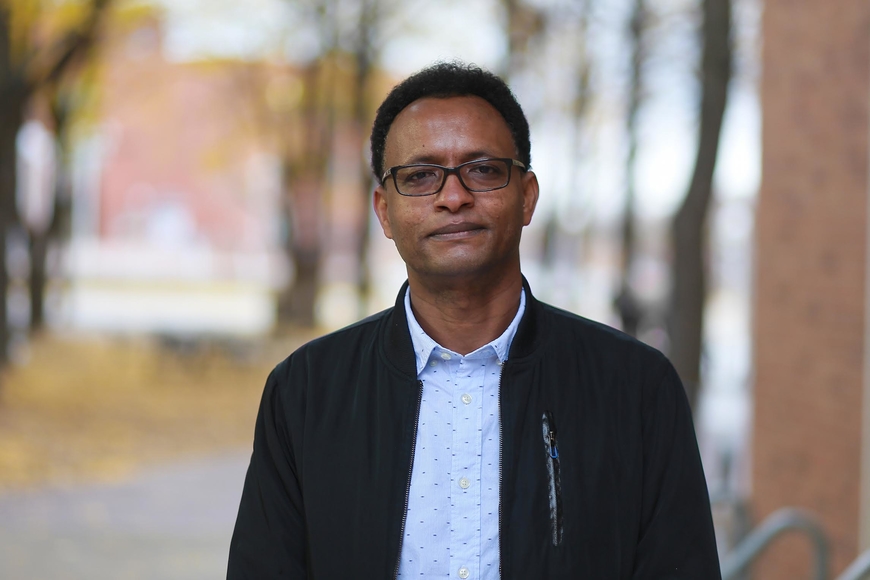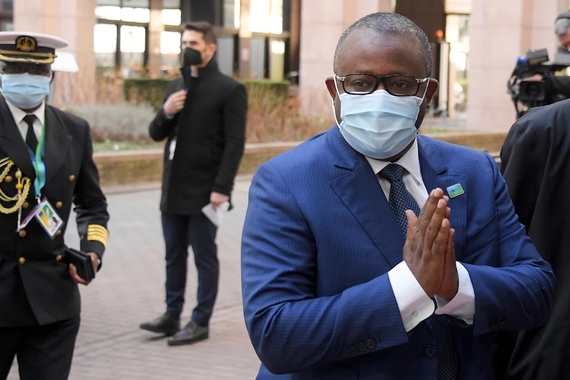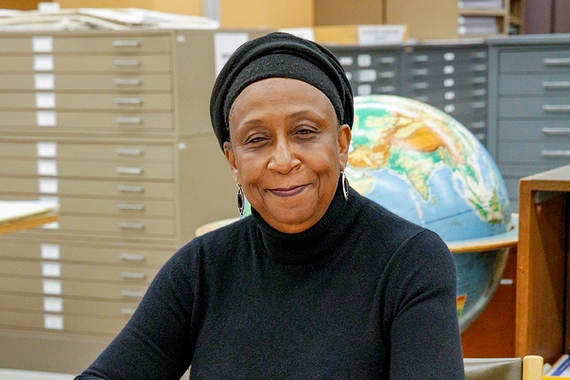Home is Where the Heart Is…So He’ll Teach About It
Newly appointed assistant professor Bula Wayessa arrived at the University of Minnesota in spring 2021, bringing a desire to teach students about his homeland. In his time here in the African American & African studies and anthropology departments, he hopes to connect students to topics related to the African continent. “Africa is for everyone. The modern humans living in different parts of the world came from Africa,” Wayessa says. “The world is very interconnected and it’s not [what] we might think.”
From Humble Beginnings
Wayessa’s teaching career began at Jimma University in his native Ethiopia, where he taught history and archeology. Being an instructor in Ethiopia showed him that “you can make things possible when the resources are extremely limited, where you don’t have enough textbooks to teach [your class], and [having] so many factors affect a student’s learning.” He credits teaching in a poorer country as a factor towards his passion for teaching. “Teaching in such a situation made me proud of teaching here [at the U] because… [I see] what it looks like to teach when there are resources,” says Wayessa.
Wayessa then began teaching in Canada and the United States. Teaching in different countries allowed him to engage with diverse students that, in turn, gave him a new perspective. “[These experiences] enabled me to put together information...I know how to deal with students, I know just how students feel in certain circumstances,” he says.
Relating to a Culture Through Research
Outside of the classroom, Wayessa has worked on research ranging from agriculture to ceramics. He studied ceramics and decided to focus on social identity in relation to ceramics. His fascination then led to him studying ceramics from western Oromia in Ethiopia. He notes that “the potters are typically women...because of a number of cultural taboos,” Wayessa says. Because the art of pottery is primarily female-dominated, he explains that “it [pottery making] is perceived to make them infertile. For this reason, males abstain from the practice… and men’s female relatives (such as their wives) distance men from the task.”
Using the chaîne opératoire approach (an approach that aims to explain how certain materials affect the overall social world), he investigates how potters make technological choices in pottery production and how they transmit this knowledge from generation to generation. “[Archaeology] gave me more advantage to study the material...and [focus] on the people themselves that make the objects,” he explains.
His research on agriculture is a newer interest and closer to home. “I was looking at what was happening to my birth village back home. The emergence of some global crops is taking over some indigenous crops. So I was just asking how small-scale farmers are dealing with globalization.” His research investigates how farmers deal with globalization of crops.
With his knowledge, he is able to teach students a different perspective of the continent. Food Sovereignty in Africa—a course Wayessa teaches—discusses the contemporary challenges facing Africa in terms of food self-sufficiency, situated in historical and environmental contexts. In that course, students learn the roles of climate change, post-colonial global political structures, and large-scale agricultural land lease on shaping agricultural productivity in Africa. Wayessa believes that the study of the African continent can help students—as global citizens—gain a wider perspective of Africa with the rest of the world.
Bringing Africa to the U
Although he is still new to the University, a huge part of his experience has been the students: “I love the students,” he says. “[They are] always ready to learn.” He teaches two courses: Contemporary Issues in Africa and Food Sovereignty in Africa.
He hopes that students will gain knowledge about the African continent through engaging with diverse material and reflecting on his own experiences. Students’ increased interest in African studies “is important in so many ways because it is a nice forum to help deconstruct the wrong perception about African society and Africa as a continent.” While most of his students aren’t from Africa, he hopes that he can bridge the cultural divide between cultures and promote peaceful independence. “After all, we are all human beings and we all share a lot of things in common.”



